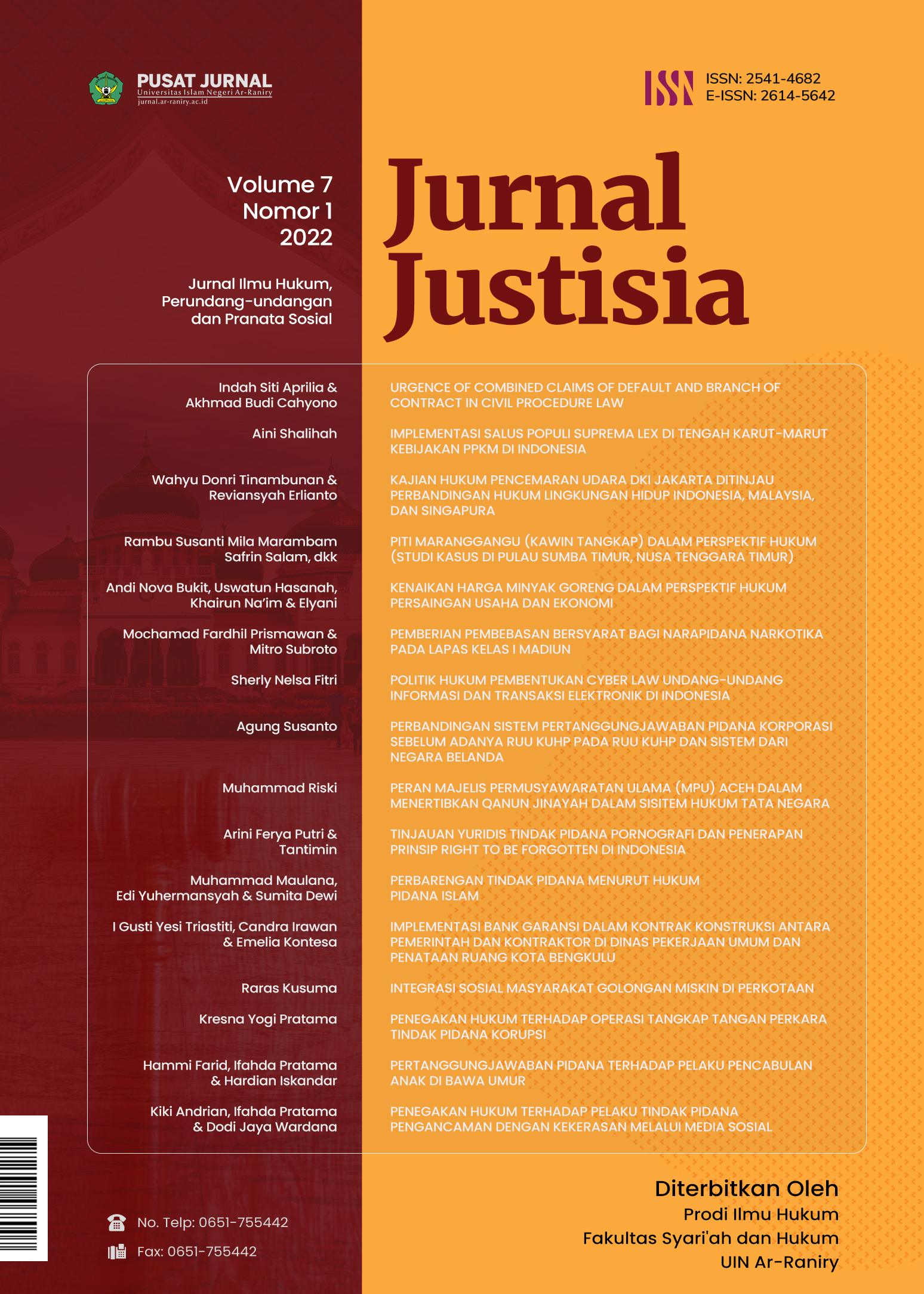Integrasi Sosial Masyarakat Golongan Miskin Di Perkotaan
DOI:
https://doi.org/10.22373/justisia.v7i1.11643Abstract
The poor are seen as incapable and helpless people because poverty has become a culture for them. This situation is caused by structural constraints that are still shackled in the community. In the process of survival in society, each group is required to establish and develop social relationships based on the complexity of the interests of each group in order to create social integration. The condition of the poor living in urban areas is at the subsistence level and below subsistence. So that this triggers pressure that causes the poor to be in a disadvantaged position. In an effort to uphold justice to create a form of social integration in urban areas, an interconnected environment is needed. In the reality that is found, the life of the community between groups in urban areas has not yet occurred as a perfect assimilation. Imperfect assimilation results in problems that trigger inter-group conflicts, such as discrimination by various parties or groups against the poor who are powerless. This article discusses how the poor can be integrated with various aspects of life and urban groups in the existing reality.
References
Panjaitan, M. (2000). Memberdayakan kaum miskin. BPK Gunung Mulia.
Nurwati, N. (2008) Kemiskinan: Model pengukuran, permasalahn dan alternatif
kebijakan. Jurnal Kependudukan Padjadjaran, 10(1), 1.
Saifuddin, A. F. (2014) Integrasi Sosial Golongan Miskin di Perkotaan: Kajian Kasus di
Jakarta. Antropologi Indonesia.
Suhardin, Y. (2012). Peranan Negara Dan Hukum Dalam Memberantas Kemiskinan
Dengan Mewujudkan Kesejahteraan Umum. Jurnal Hukum & Pembangunan, 42(3), 302-317.
Marfuah, I. (2007). Kemiskinan Dan Kesejahteraan. Jurnal Ekonomi Pembangunan:
Kajian Masalah Ekonomi dan Pembangunan, 1(1), 35-46.
Zain, M. (2010). Reformasi Pengentasan Kemiskinan: Dari pendekatan ekonomi ke
pendekatan kesejahteraan. Jurnal Masyarakat Kebudayaan dan Politik, FISIP-Universitas Air Langga, 12, 79-96.
Downloads
Published
Issue
Section
License
The Authors submitting a manuscript do so on the understanding that if accepted for publication, copyright of the article shall be assigned to Jurnal Justisia : Jurnal Ilmu Hukum, Perundang-undangan dan Pranata Sosial, Ar-Raniry State Islamic University, Indonesia as the publisher of the journal.
Jurnal Justisia : Jurnal Ilmu Hukum, Perundang-undangan dan Pranata Sosial right of first publication with the work simultaneously licensed under Creative Commons Attribution-ShareAlike 4.0 International License (CC BY-SA 4.0) that allows others to share (copy and redistribute the material in any medium or format) and adapt (remix, transform, and build upon the material) the work for any purpose, even commercially with an acknowledgment of the work's authorship and initial publication in Jurnal Justisia : Jurnal Ilmu Hukum, Perundang-undangan dan Pranata Sosial. Authors are able to enter into separate, additional contractual arrangements for the non-exclusive distribution of the journal's published version of the work (e.g., post it to an institutional repository or publish it in a book), with an acknowledgment of its initial publication in Jurnal Justisia : Jurnal Ilmu Hukum, Perundang-undangan dan Pranata Sosial. Authors are permitted and encouraged to post their work online (e.g., in institutional repositories or on their website) prior to and during the submission process, as it can lead to productive exchanges, as well as earlier and greater citation of published work (See The Effect of Open Access).

